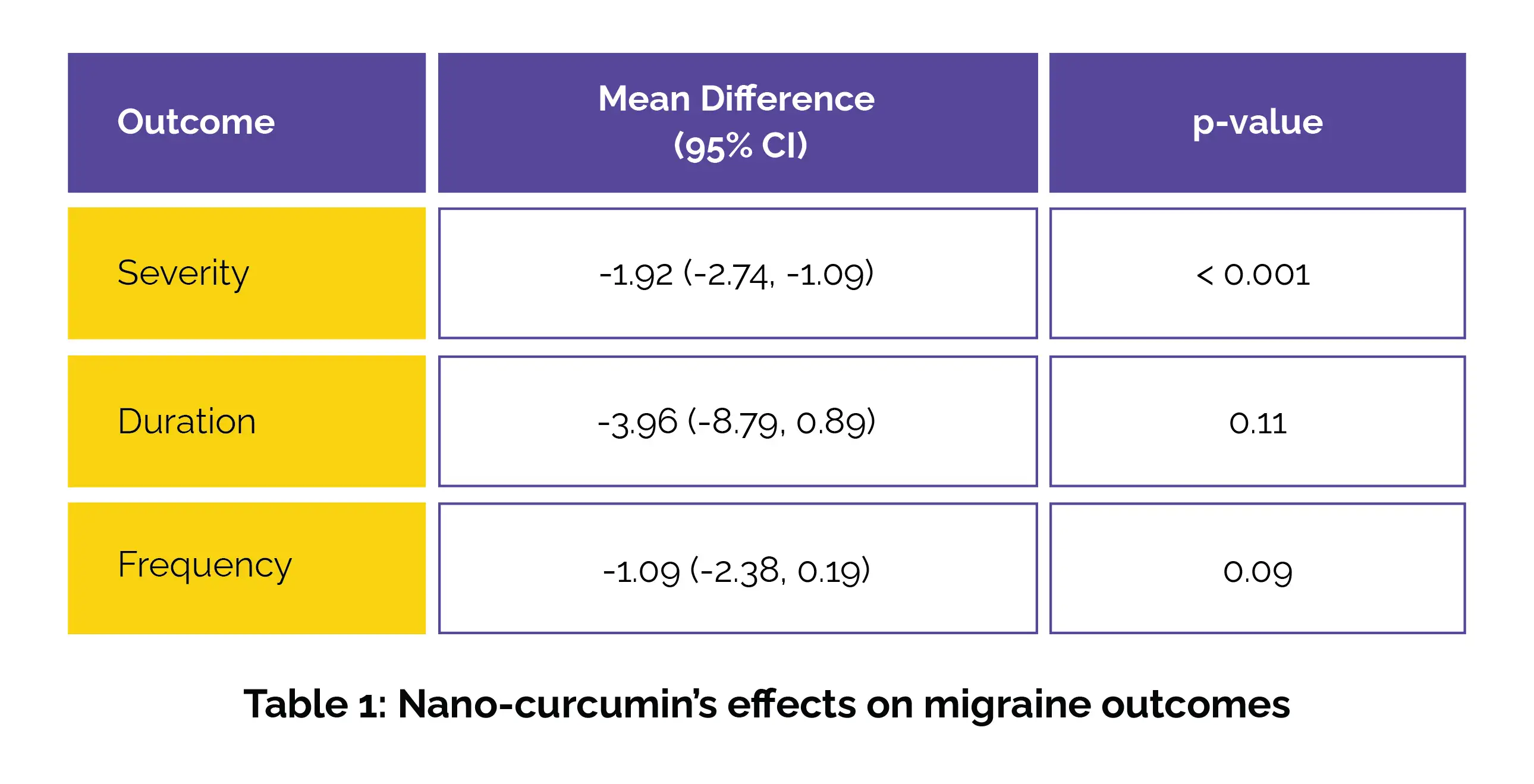Categories
Change Password!
Reset Password!


Migraines are more than just headaches—they disrupt daily life, demanding optimal solutions.
While nano-curcumin supplementation significantly eases migraine severity, it shows no clear effect on the duration and frequency of attack.
Migraines are more than just headaches—they disrupt daily life, demanding optimal solutions. This systematic review and meta-analysis explored whether nano-curcumin, a potent anti-inflammatory compound, can ease the burden by minimizing migraine attack severity, frequency, and duration.
A comprehensive search across PubMed, Scopus, Embase, Web of Science, ProQuest, Cochrane Library, and Google Scholar identified randomized controlled trials (RCTs) scrutinizing nano- curcumin’s effects on migraine attacks. Meta-analysis was carried out using RevMan (V 5.4), with results presented as mean differences and 95% confidence intervals (CIs).
In total, 3 RCTs with 126 volunteers fulfilled the inclusion criteria. Meta-analysis revealed a prominent reduction in migraine severity with nano-curcumin supplementation. However, no notable differences were found in attack duration or frequency between the intervention and control groups, as shown in Table 1:

Nano-curcumin exhibits potential in alleviating migraine severity, offering a promising complementary approach for those seeking relief. While its effects on attack frequency and duration remain uncertain, its ability to ease pain could be a valuable addition to migraine care strategies.
Advances in Integrative Medicine
The effect of Nano-curcumin on migraine attacks: A systematic review and meta-analysis of randomized control trials
Reza Aletaha et al.
Comments (0)